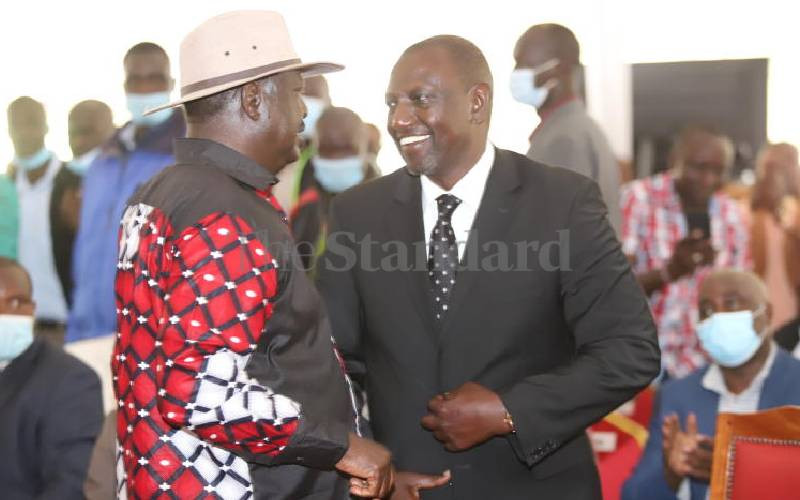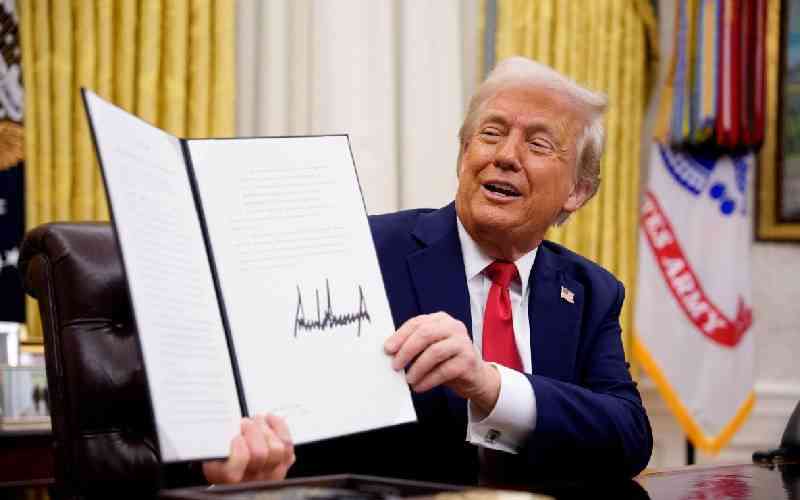
As the world's climate change stakeholders troop to Azerbaijan in November and occupy the negotiation rooms for the COP29 climate talks, there will be zero seats or roles for wildlife. Yet they hold a great key to meaningful climate action.
In the last few COPs, daring acts by those blamed for global warming have captured the attention of the media and other stakeholders.
According to the UN’s data, at least 636 fossil fuel industry lobbyists attended COP27 talks in Egypt. The number tripled in the COP28 talks.
Of course there were other major enablers of global warming who might have escaped the spotlight but whose drive to make profits have only worsened industrial emissions and deforestation.
Even as we focus on the fossil fuel industries and end deforestation, wildlife offer an unexploited opportunity that, combined with the exiting approaches, can hasten absorption of the dirty gases from the atmosphere and help reduce climate-induced calamities.
While there is never really ever going to be room for wildlife to participate at COPs, their role in carbon sequestration, which is key in mitigating impacts of climate change, must be supported, especially in Africa, where, for many, wildlife are for heritage and foreign exchange earner through tourism. But there is more.
Herbivores, for instance, have grazing patterns that enable carbon storage capacities in grasslands through deeper-rooted plants. Some huge ones disperse tree seeds that help in regeneration of forests. They are fond of feeding on undergrowth in forests, allowing deep rooted huge trees to thrive. Such trees have more capacity to act as carbon sinks.
Nature has its own way of controlling wildlife populations, including through predation. The carnivores that eat herbivores prevent the latter’s numbers from being uncontrollably high and dangerous to the same vegetation we hope to spare.
The predators automatically prevent overgrazing, allowing plants and trees to thrive and sequester more carbon in a delicate balance, increasing their ability to mitigate climate change.
Humans bear the responsibility to protect such animals and ensure that their numbers are good. It means protecting the wildlife against poachers, and ensuring the same habitats are not lost, for forests to be carbon sinks.
Poaching and mining in such natural habitats interferes with the nature set patterns. Since protecting natural habitats enables peaceful coexistence and improves carbon sequestration, guarding these processes must not only depend on some goodwill but also be entrenched in policies that promote conservation.
The Nationally Determined Contributions developed by many nations in compliance with the Paris Agreement, which outline their strategies for reducing greenhouse gas emissions and adapting to climate impacts, must broadly recognise the role of wildlife in carbon sequestration, and a key component of climate action.
After that, African nations must expand and manage protected areas and wildlife corridors better to minimise human-wildlife conflict, pollution and exploitation.
This requires allocation of more funds to wildlife in national and other budgets, and building communities’ capacity.
Cross-border collaboration is key in cases where wildlife habitats go beyond borders, like the Mara ecosystem shared by Kenya and Tanzania, or Kavango-Zambezi Transfrontier Conservation Area by five countries in Southern Africa.
Policy-backed mechanisms to reward community involvement in conservation, stronger anti-poaching laws and enforcement, as well as integration of climate and biodiversity policies, considering their interconnectedness, are necessary.
The bottom line is that ending deforestation and drastically reducing fossil fuel emissions are important. In these efforts, we must explicitly recognise and incorporate wildlife, for a guaranteed healthier and more resilient planet.
-The writer advocates for climate justice.
 The Standard Group Plc is a multi-media organization with investments in media
platforms spanning newspaper print operations, television, radio broadcasting,
digital and online services. The Standard Group is recognized as a leading
multi-media house in Kenya with a key influence in matters of national and
international interest.
The Standard Group Plc is a multi-media organization with investments in media
platforms spanning newspaper print operations, television, radio broadcasting,
digital and online services. The Standard Group is recognized as a leading
multi-media house in Kenya with a key influence in matters of national and
international interest.
 The Standard Group Plc is a multi-media organization with investments in media
platforms spanning newspaper print operations, television, radio broadcasting,
digital and online services. The Standard Group is recognized as a leading
multi-media house in Kenya with a key influence in matters of national and
international interest.
The Standard Group Plc is a multi-media organization with investments in media
platforms spanning newspaper print operations, television, radio broadcasting,
digital and online services. The Standard Group is recognized as a leading
multi-media house in Kenya with a key influence in matters of national and
international interest.











